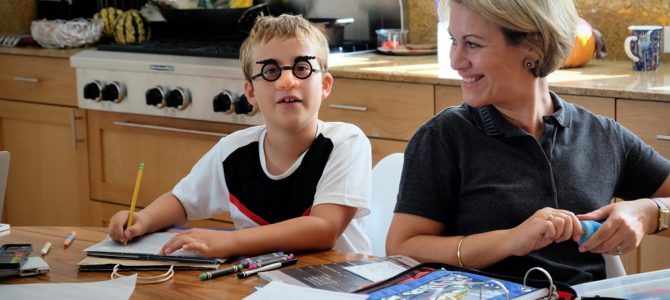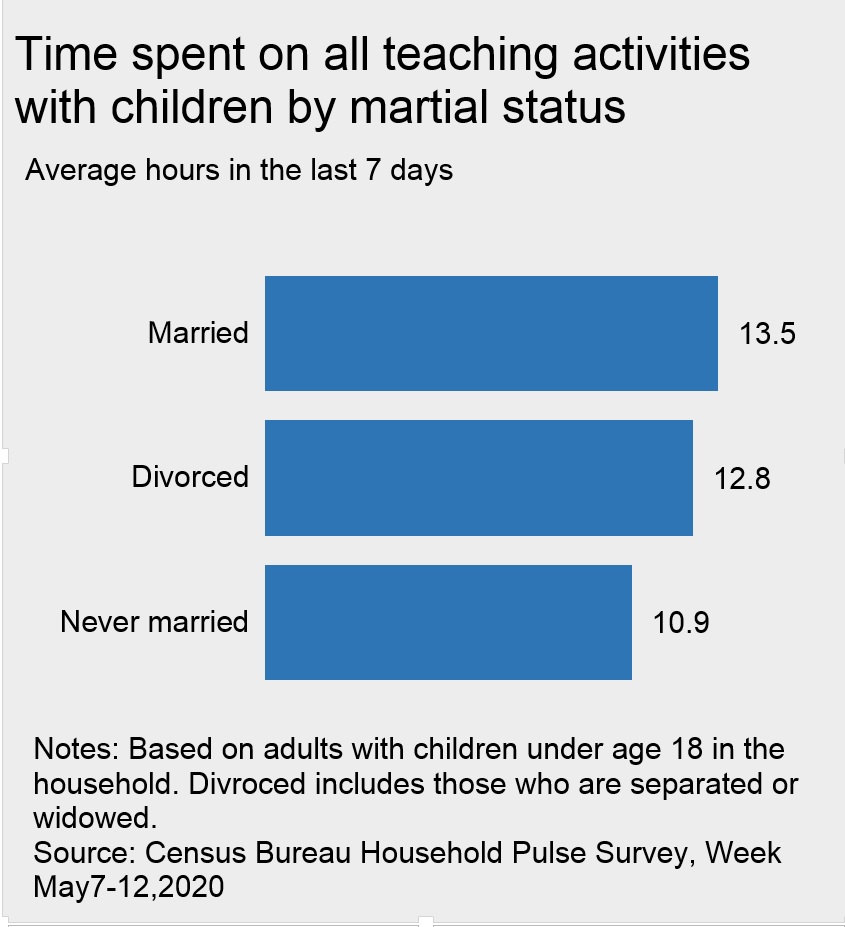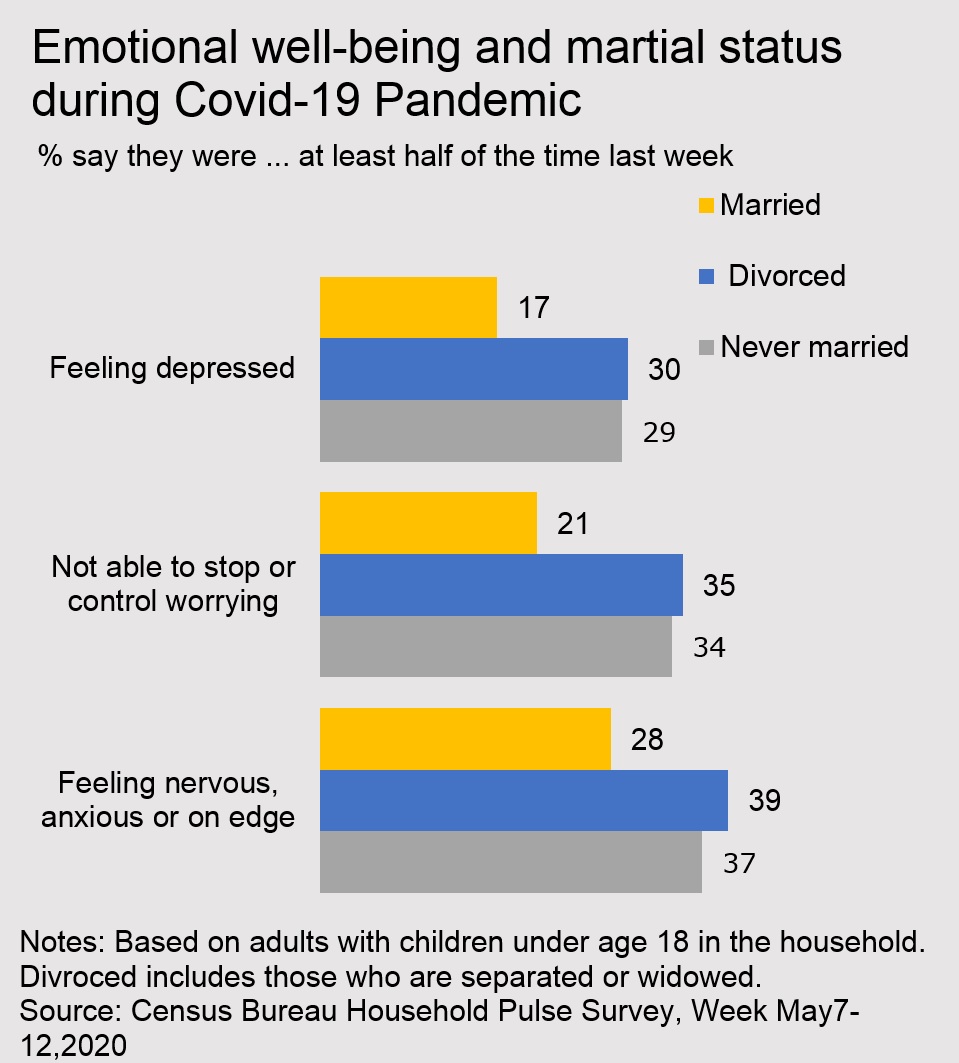
Worry and stress rose to a historic high during the Covid-19 panic, at least since the financial crisis of 2008-2009, according to recent survey evidence from Gallup. Parents of young children had an added responsibility of teaching their children while schools and daycare were closed.
Compared with parents who handled these alone, married parents spent more time teaching their children at home, according to an early June survey from the Census Bureau that tracks Covid-19’s effects on households across the country. In addition, married parents are doing a relatively better job coping with this crisis emotionally.
Since early March, a vast majority of households with school-age children in the U.S. have been affected by school closings. According to the same Census survey conducted during May 7 to 12, 42 percent of parents reported that their school-age children’s classes were cancelled and 73 percent said classes had moved to a distance-learning format. The share of parents who reported no change in their children’s school was less than 1 percent.
It was important for children to continue their education during school closings, and parents played a key role in helping them. Findings from the Census survey suggest that, on average, married households reported close to 14 hours per week (2 hours a day) in teaching activities with children. In households with never-married parents, children spent an average of 11 hours a week (about 1 and a half hours a day) in educational activities. Even after controlling for differences in education, race, and age, married parents still allocated two hours a week more to teaching activities with children than their counterparts who were not married.

One reason we observe these differences in childhood investments between married and non-married parents may stem from parents’ mental health. Put simply, if a parent is not feeling well, he or she is less likely to allocate time towards teaching activities.
In fact, we find that parents who were feeling depressed allocated 11 percent less time to teaching activities for their children each week even after controlling for differences in age, education, race, marital status, and income. Of course, home-schooling children may also bring some joy, which could help with parents’ emotional wellbeing.
We focused on parents’ answers to three mental health questions in the Census Household Pulse survey that asked about the frequency that the respondent has felt depressed, worried, or anxious over the seven days prior to May 7-12. We defined someone as depressed, worried, or anxious if he reported this occurring during “more than half the days” or “nearly every day.”
Under this definition, 22 percent of adults with children under age 18 in the household reported being depressed, 26 percent reported being worried, and 32 percent reported feeling anxious. There was a clear difference of mental health by marital status.

For example, about 30 percent of unmarried parents said they often felt down, depressed, or helpless in the past week, compared with 17 percent of married parents. One-third of never-married adults with children under age 18 (34 percent) said they couldn’t stop worrying in the past week, while the share who reported this among married parents was 28 percent.
These differences remained significant even after controlling for family income, recent job loss, and demographic characteristics including age, sex, race, education, and the number of children in the household. For example, our regression analysis suggests that married parents were about 20 percent less likely to be depressed than unmarried parents in the week prior to mid-May, after all the controls.
Marriage is not just about personal happiness—it’s about raising a family. The protecting effect of marriage has been manifested in this Covid-19 pandemic, as it is in myriad aspects of life.
While the shutdowns have taken a toll on the emotional well-being of all adults with children, married parents have fared relatively better. They also spent more time helping with their children’s education during the school closings. Since kids living with unmarried parents are already at a large disadvantage for academic success, we may see this student performance gap grow in the near future.









